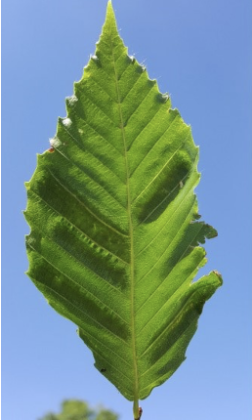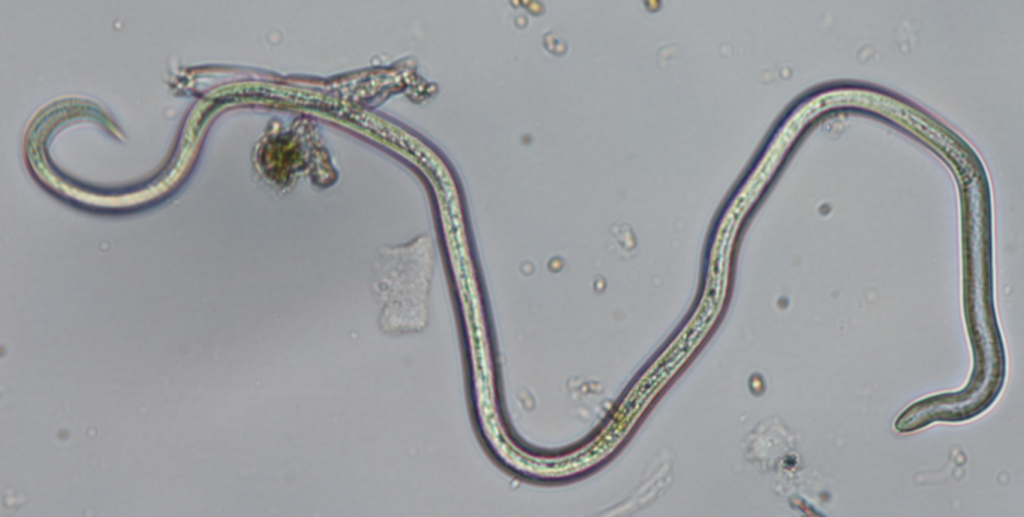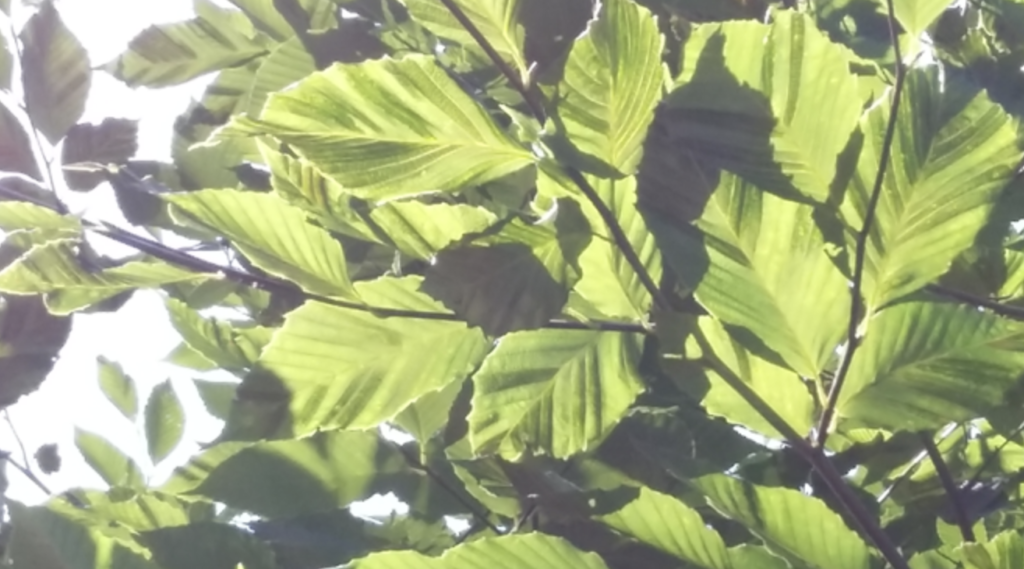NOTICE:
Beech Leaf Disease
Another Invasive Species Ready to Dramatically Degrade our Forests
Our forests are still reeling from the recent loss of ash trees due to Emerald Ash Borer and many of us are also being impacted by the dangers of falling limbs and branches. This joins past serious insults to our trees from severe invasive pest and pathogen that has impacted elms, chestnuts, hemlocks, oaks, and others over the last century.
Unfortunately, we have some more very bad news – Beech Leaf Disease may be taking all of our American Beech Trees in the near future.
Beech Leaf Disease (BLD) is caused by an invasive nematode and in 2020 was detected in our state – severe damage has already been observed across northern New Jersey, and it appears that infected trees are nearly dead after 3-5 years. Unfortunately, the disease was observed in the Hopewell Valley in the summer of 2023.
How to Identify BLD

The nematode worms impact the production and size of leaves and buds, significantly reducing canopy cover. Early stages of the disease are identified by dark banding pattern between the leaf veins – this is most easily seen when the leaf is held up to light.


Can we save our trees?
Experimental trials are underway, with the hopes of stemming impacts on individual trees in landscapes and arboreta, but experts agree that large-scale treatment in natural areas is not feasible — many forests will be forever altered with negative implications for a suite of native plants and animals. Details on potential treatment methods are provided here.
For Private Landowners: FoHVOS has talked with state experts to determine the current science. Bartlett Tree Experts are leading the research efforts in New Jersey, but other well-qualified companies that offer their services to landowners are essentially conducting their own informal research (e.g., SavATree). Here is a quick technical summary – all current treatments are aimed at improving tree health to reduce infection severity, as opposed to treatments that directly kill the invasive nematodes. Details on potential treatment methods are provided here.
FoHVOS is exploring the possibility of requesting ‘bulk treatment discounts’ by pooling individual landowners into larger orders — if you have interest in treating trees on your property, please reach out to Mike at mvanclef@fohvos.org.
